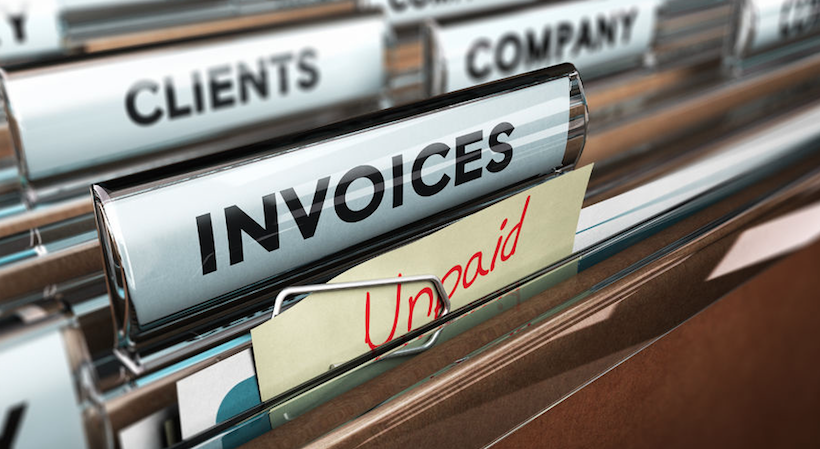When you work as a freelancer or run your own business, non-paying clients can be a major threat to your livelihood, and unfortunately, they’re all too common. The Freelancers Union found that 70 percent of its 280,000 members dealt with lost money because of delinquent clients. If you’re working on a large job or you simply don’t have a large cash reserve, a non-paying client can leave you struggling to scrape by.
There’s no way to eliminate the risk of non-payment entirely, but you can take a few steps to protect yourself:
- Get everything in writing
Any time you get a job or land a client, you should have a contract stating the terms of your arrangement, including the deliverables, the deadline and the payment amount.
Considering you can now draw up a contract online and send it to a client to eSign without printing anything, there’s no excuse for working without a contract.
Related: How to Get Your Invoices Paid, Fast
- Look at past reviews and references
When you have a potential new client, see what you can find out about them online. Perform a search for their name or company name, check the Better Business Bureau (BBB), and if you’re part of any forums or groups related to your industry, check those, too. Look for any past agencies or contractors who the client didn’t pay. The past is often the best predictor of future behavior.
- Change your payment terms
Many freelancers and businesses receive payment in full after delivering the work to the client, but this isn’t the only option, nor is it the best option.
To avoid payment issues entirely, try changing your payment terms and invoice the client for the job upfront or require a minimum deposit, so you’ll receive payment before conducting any work.
“One of the best ways to get a client bought into your service and to weed out anyone that is just window shopping, is to get a deposit. This ensures that the client is bought in up front and anyone that is hesitant to pay a deposit might be keeping their options open. If they are not willing to commit with a deposit, then you should not be willing to commit with work,” Paul Allen of Dublin SEO suggests.
Depending on your industry, some clients may be wary of this, especially if it’s a new relationship. However, if you’re able to show your client results and reviews from past campaigns, that will often mitigate their fears in making an upfront payment.
- Go with your gut
If you’re getting the impression that a potential client isn’t going to pay, it’s better to avoid taking the job.
“Listen carefully for clues during the sales process. Some business owners and decision makers will actually brag about how they stiffed a vendor or partner. Of course, in their story, they always provide ample justification for non-payment-the vendor’s lack of results, etc. When I look back through our sales notes from clients that have skipped town without paying one of our invoices, several include comments like this,” Ben Landers, president of Blue Corona, said.
Other red flags to keep an eye out for include clients who ask for discounts or mention that your fees are high. A good client will be ready to pay what you’re worth. Those who want you to cut them a deal are usually a hassle.
Sign Up: Receive the StartupNation newsletter!
- Talk to an attorney
As a last resort with a non-paying client, you can speak to an attorney to see what your legal options are. A letter from an attorney could be just the motivation the client needs to pay you. You may also consider small claims court, although this can sometimes be a dead end.
Considering the difficulties of dealing with non-paying clients, it’s wise to look for warning signs that can help you avoid them entirely and set up contracts to provide a form of protection.
“Talk about cost and money openly and honestly, from your first conversation with a prospect. (You) don’t want to invest one hour in courting a prospective client, only to discover they won’t be able to pay (you) anyway,” Shlomo Bregman, an attorney and consultant, said.
Regardless of your line of business, any time you speak to a potential client, it’s just as important for you to interview them as it is for them to interview you. By doing your due diligence, and changing the way you invoice clients, you can keep unpaid invoices to a minimum.






